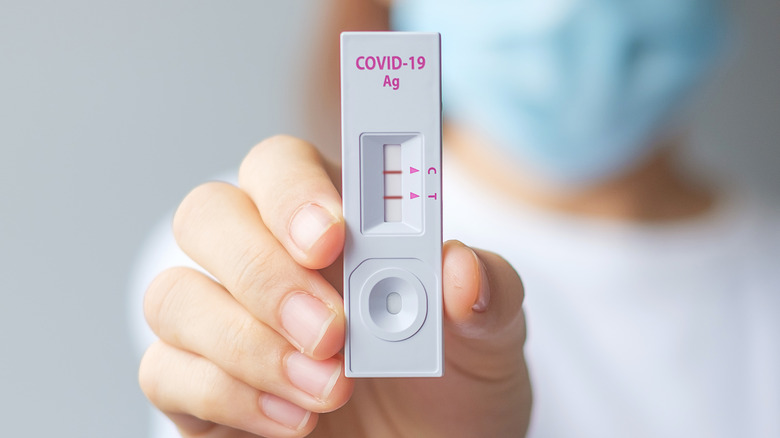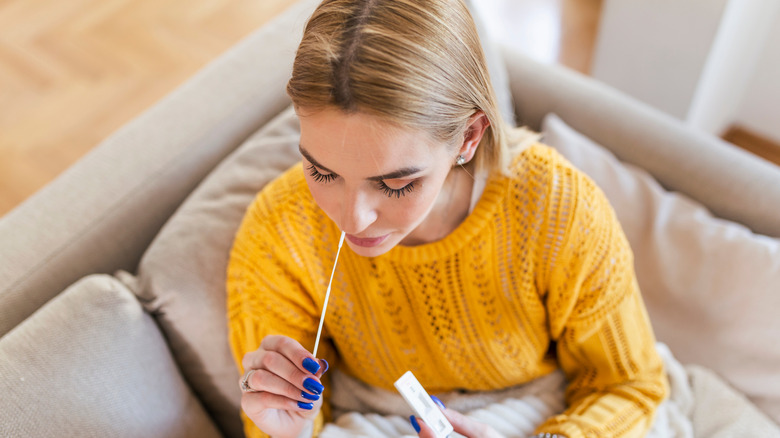How To Be Sure Your At-Home COVID-19 Test Is Real
The rise of COVID-19 has led people to do some strange things. Some people have hoarded medical supplies or cleaning products, while others have gone almost entirely contact-free. It's hard to imagine that anyone will soon forget the toilet paper shortage of 2020. However, all of these actions pale in comparison to what some people have done to profit from the fear of COVID-19.
Some companies manufacture masks that only look solid but are, in fact, a fine mesh that does nothing to stem the spread of germs. The New York Times recently reported on 2 nurses arrested in Long Island, N.Y., for running a fake vaccine card scheme. The con, which put an untold number of people at risk, netted them an estimated $1.5 million.
Perhaps worse than both of these groups are the people who are now generating and selling fake COVID-19 home tests. The Federal Trade Commission (FTC) highlighted the issue earlier this month. Its press release underscored the dangers of these tests and provided a link for people to report suspected fraudulent activity. Most importantly, the briefing also outlined ways for consumers to avoid buying fake tests.
How to avoid fraudulent COVID-19 tests
As the FTC states, fake COVID-19 tests not only dupe the consumer who buys them, but also the people around them. The consumer may enter a public space, thinking that they are not infected. In some cases, that may be true, but all too often they may in fact be carrying COVID-19. This can then be spread to everyone around them.
The FTC recommends that consumers should, whenever possible, avoid buying from unfamiliar websites. If that is not possible — if a known pharmacy is sold out of tests, for example — consumers should do research on a site before buying from them. When performing this search, the consumer should add "scam" or "complaint" next to the site name and ensure no relevant results pop up.
Additionally, any legitimate test will be marked as approved by the U.S. Food and Drug Administration (FDA). For its part, the FDA adds that COVID-19-related scams do not end at testing products. Fraudulent products sometimes claim to cure and even prevent infection in the first place. The FDA encourages citizens not to fall for such claims and to check the site before spending their money on ineffective and potentially dangerous products.


